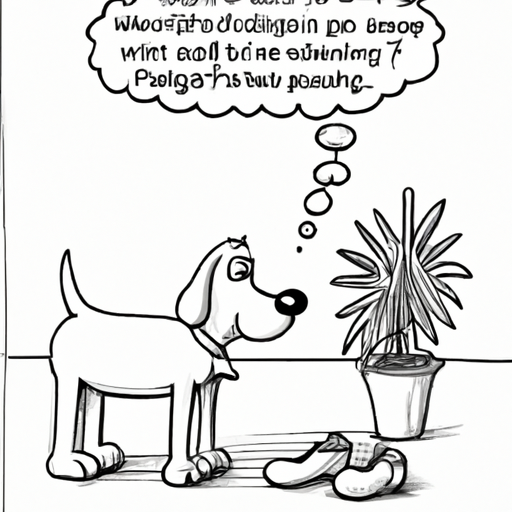Hello, dear caregiver. You’re probably here because you’ve noticed that your beloved pet, your dog, has a habit of peeing on certain things. You might be wondering why this is happening and how you can address it. Don’t worry, you’re in the right place to find answers.
1. Understanding Canine Behavior
Dogs, just like humans, have their unique behaviors. It’s essential to understand that dogs communicate much differently than we do, and peeing on things can be a form of communication for them.
Marking Territory
Indeed, the primary reason dogs pee on things is to mark their territory. Dogs are territorial creatures, and they use their urine to signal to other dogs that they’ve claimed an area as their own. This behavior is more common in male dogs, but female dogs can also engage in this behavior.
Fear and Anxiety
Another reason why a dog might pee on things is due to fear or anxiety. If your dog feels threatened or anxious, they might pee on things as a way of coping. This is similar to the way some humans bite their nails or fidget when they’re nervous.
Medical Issues
Sometimes, a dog might pee on things due to underlying medical issues. For example, urinary tract infections, bladder stones, or kidney disease can cause a dog to pee more frequently and in inappropriate places.
Asserting Dominance
Dominance is another reason why dogs pee on things. Dogs, especially males, might pee on things to assert their dominance over other dogs. This is often the case if there’s another dog in the house.
2. How to Address Your Dog’s Peeing Habits
Now that you understand why your dog might be peeing on things, the next step is figuring out how to address the issue. Here are some suggestions:
- Training: Train your dog to pee in specific areas, like outside or in a designated potty area.
- Regular Walks: Ensure your dog gets regular walks. This gives them an outlet to mark their territory in a suitable environment.
- Medical Check-ups: Regular check-ups with the vet can help detect any medical issues that might be causing the behavior.
- Positive Reinforcement: Always use positive reinforcement when your dog pees in the appropriate place.
3. When to Seek Professional Help
If your dog’s peeing habits do not improve despite your best efforts, it might be time to seek professional help. A professional dog trainer or a veterinary behaviorist can provide more specialized guidance.
4. Effects of Your Dog’s Peeing Habits on Your Relationship
Your dog’s peeing habits can affect your relationship with them. It can cause frustration and stress for both you and your dog. However, remember that your dog isn’t doing this to upset you. They’re simply expressing their natural behaviors or possibly dealing with a medical issue.
5. FAQ Section
Q1: Why is my dog suddenly peeing on things?
A1: Sudden changes in behavior, such as peeing on things, can be indicative of a medical issue. It’s best to consult with your vet.
Q2: Does neutering or spaying affect peeing habits?
A2: Yes, neutering or spaying can reduce urine marking in dogs.
Q3: How can I stop my dog from peeing on furniture?
A3: Training, regular walks, and positive reinforcement are all effective strategies. If these don’t work, consider seeking professional help.
Q4: Can a dog’s diet affect their peeing habits?
A4: Yes, a dog’s diet can significantly impact their urinary health. Some foods can cause more frequent urination.
Q5: Why does my dog pee on other dogs’ pee?
A5: This is a form of communication. Your dog is either asserting dominance or acknowledging the other dog’s presence.
Remember, patience and understanding are key when dealing with your dog’s peeing habits. It’s important to remember that they’re not doing it to annoy you, but because it’s a natural behavior or a sign of an underlying issue.



